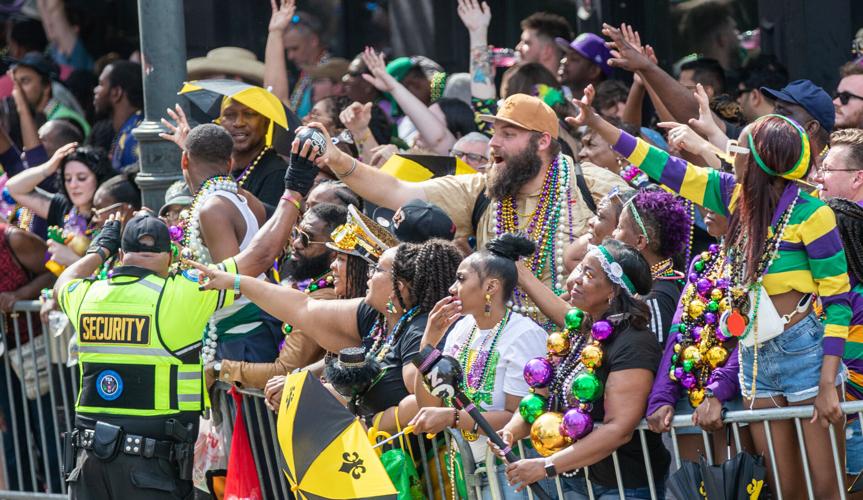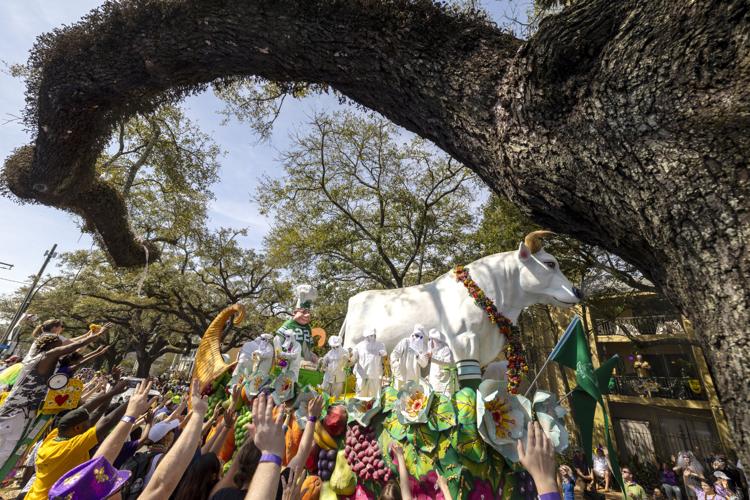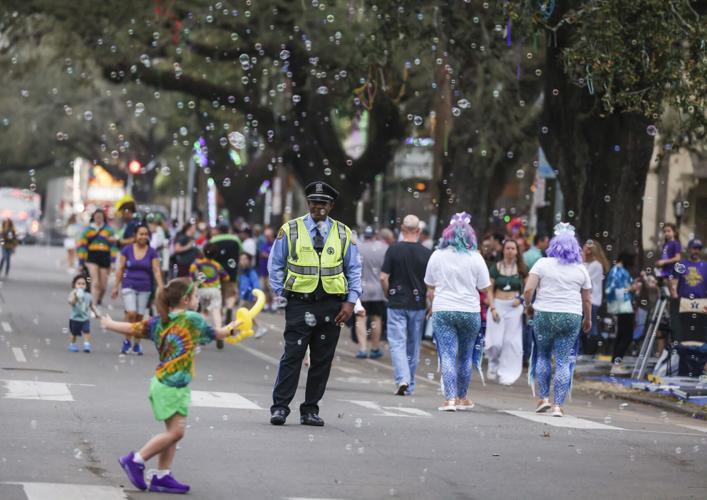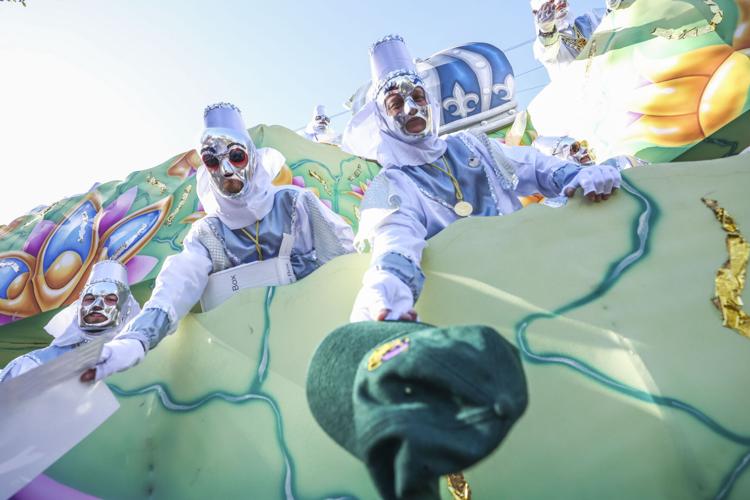New Orleans will again spend millions of dollars to add enough police to keep parade routes intact for Carnival 2024, city leaders say.
Amid a shortage of available city cops, out-of-town officers are expected to return to help supervise the big party, next year and in years to come. The city spent $3 million last year on supplemental pay for those officers and deputies, and to match their pay for the New Orleans officers working the parades alongside them.
At last week's Mayor’s Mardi Gras Advisory Council meeting, co-chairman James Reiss III said that in 2024, supplementary officers “will be coming in to stand post along the parade route,” where they will serve “as a show of force which will be a great deterrent for crime.” They'll also help parades “remain at a steady, natural pace,” avoiding stoppages, he said.
Reiss said city officials have assured krewe leaders that "the routes can remain their traditional length" with the added law enforcement.
The city's chief administrative officer, Gilbert Montano, echoed that pledge in an interview Wednesday, saying Carnival 2024 would be "modeled exactly on what we did last year."
Planners are working through the logistics, he said, but he's certain parade routes will remain at least as long as they were in 2023, thanks to the influx of officers.
In 2022, the lengths of several parades were cut due to a shortage of NOPD officers and other service personnel. Pressed to allow the parades to return to their traditional lengths, last year the city hired more than 170 officers from 13 police departments, sheriff’s offices and other law enforcement agencies across the state.
That figure included deputies from Jefferson, Lafourche, St. James, Tangipahoa and Washington parishes, plus officers from the University of Holy Cross and University of New Orleans police forces, as well as state corrections officers. As many as 120 Orleans Parish sheriff’s deputies and 125 State Police troopers also aided in managing Carnival activities.
The need for outside reinforcements hasn't eased. The number of commissioned NOPD officers stood at 890 on Wednesday, almost 25% fewer than the department employed three years ago.
Last year, NOPD cops teamed with the outside officers and deputies on parade patrols, in a deployment coordinated by Orleans Parish Sheriff Susan Hutson. The visiting officers were paid $50 per hour for crowd control along parade routes before Fat Tuesday, and $75 on Mardi Gras Day. NOPD officers were paid at least the same rate.
The city ended up spending $560,000 for outside law enforcement, and more than $2.4 million in supplemental pay for NOPD officers and other city employees, according to Montano's office.
Last year, "everyone was holding their breaths to see if it would work," said Montano, adding, "we built the plane as it was flying."
In the end, adding outside manpower to allow parades to return to their traditional lengths was "very successful," he said, though there ware some "lessons learned." Montano said there should be less of a rush for Carnival 2024.
The money to pay for the reinforcements will again come out of the city's general fund. Montano pointed to a $2.5 million dollar line item in the city's budget for the program in 2024, but he said there are more funds at the ready if costs rise. In any case, the benefit of a safe Mardi Gras season generates so much economic impact that "the city makes out as a winner here," he said.
Bringing in law enforcement officers from outside of the parish is the "new normal, the smart normal, the efficient and effective normal" for Carnival season, at least for the rest of the current administration, he said.
The swift enlistment of outside officers last year came with its share of controversy. Hutson was criticized for putting up her top brass up in French Quarter hotel rooms for Carnival. On Wednesday, New Orleans Inspector General Ed Michel released a report that found her office spent $18,000 for 90 nights at the Omni, though Hutson's command staff occupied those rooms for only 37 nights. Michel described the room rentals as "wasteful and unnecessary."
The parades went off as scheduled with few hitches, however.
Casey McGee, a sheriff's office spokesperson, said it was too early to get into details about next year.
"Discussions right now are very preliminary and it’s too soon for us to comment on our support and/or involvement at this stage," McGee said in an email. "We have not met with the city or NOPD yet in this regard to determine these answers."
At Thursday’s meeting, NOPD Officer Andrew Palumbo said that he expected the number of outside officers that the city will hire in 2024 will be similar to last year but that those projections haven’t been made yet. Palumbo said he would be meeting with Hutson's office “to get that started.”
The Mayor’s Mardi Gras Advisory Council is composed of leaders from all of New Orleans float parades, plus representatives of various city services. The body meets periodically through the year to plan the nine-day official parading season that precedes Mardi Gras, which next year takes place on Feb. 13.
The 2024 New Orleans Carnival season starts on Saturday, Jan. 6, and concludes on Mardi Gras, Tuesday Feb. 13.
Sure, it’s the height of summer and Mardi Gras is still almost six months away. But if you want to join a krewe in time for the 2024 Carnival …
The City Council has made a laundry list of changes to the city's rules governing Mardi Gras, and while most of the modifications may seem min…









